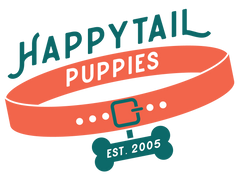Feeding Your Frenchton Puppy for Healthy Growth and Development
Following the appropriate nutrition is the key to better growth and development of your Frenchton puppy. The Teacup Frenchtons or Mini Frenchtons do come with their own diet-specific needs for their growth into strong and healthier dogs. However, they have garnered quite an attention due to their affectionate temperament and playful nature. In our post today, we are going to cover the core requirements involved with feeding your Frenchton puppy, right from knowing about their nutritional needs to effectively watch over their growth and offering them a well-balanced diet. You will set the stage right for a long, content, and healthy furry companion when you offer them the right nutrition.
Understanding Your Frenchton Puppy's Nutritional Needs
Offering a well-balanced diet rich in main nutrition is important for your Frenchton puppy to thrive. Proteins are distinctively essential as they form the building blocks for their tissues and muscles. The diet of a Frenchton puppy should be high in protein content that would support their rapid development and growth. Search for the puppy foods that come with beef, chicken, or fish as the core ingredients. Furthermore, try incorporating healthy fats into their diets as they play a key role in offering them energy and supporting better brain development. Omega-6 and omega-3 fatty acids contribute effectively to their healthier skin and coats, which is specifically essential for their distinctive coats. Also includes various protein sources that effectively help to prevent any food allergies, especially in smaller breeds like Frenchtons, Pugs, Labradoodles, etc.
Carbohydrates are not as essential as fats and proteins as they render effective energy and boost digestion. Choose the intricate carbohydrates like brown rice and sweet potatoes, which offer a sustained release of energy that is seamless for your puppies to digest compared to the simple carbs. Additionally, vitamins and minerals are important for numerous bodily functions. Phosphorus and calcium are important for the better development of bone to ensure your puppy develops stronger teeth and bones. Vitamins A, D, E, and B-complex support the entire health, including skin health, immune functionality, energy metabolism, and skin health. It includes fresh vegetables and fruits, offering a natural source of core vitamins and minerals to boost the overall nutritional features of the puppy's diet.
The need for calorie intake for Frenchton puppies changes based on their size, activity levels, and age. According to the general guidelines, puppies aged between two to four months are extremely active and evolving rapidly, requiring around 55 calories for every pound of body weight each day. The growth initiates eventually from four to six months, with the need for calories reducing to around 45 calories each pound of weight. As they approach six to twelve months, the growth constantly tapers off with the requirements that drop to about 40 calories each pound. Ensure to consult with the vet to determine the accurate calorie needs of your specific puppy with the varied individual needs that vary greatly based on their distinctive metabolic activities. It is essential to factor in the additional calories right from the treats and adjustment the meal portions appropriately, preventing overfeeding.

Choosing the Right Puppy Food
Opting for the proper quality puppy food is the key to the better health of your Frenchton puppy. It is essential to opt for foods enlisting meat as the core ingredient. Try ensuring that the first ingredient listed is a top-quality source of protein, like beef, chicken, or fish. Also, avoid foods with meat by-products or unnamed meat sources since these would reduce the nutritional value and be tough to digest. Furthermore, search for foods with fewer fillers, such as wheat, corn, and soy, offering meager nutritional values, leading to digestive issues or different allergic reactions. Foods with natural preservatives like tocopherols or vitamin E are selected over chemical preservatives such as BHT and BHA that have possible health-related risks. The entire list of ingredients should always be free from any artificial colorings, flavor profiles, and preservatives to ensure a healthful and more natural diet.
Frenchton puppies, like their lineage from Boston Terriers and French Bulldogs, have their distinctive dietary needs. They might have sensitive digestive systems, so it is important to choose foods with digestible ingredients and avoid the ones with artificial gastrointestinal upset. If your puppy is showing signs of distress, then always ensure to consult with the vet or implement a hypoallergenic diet. Appropriate weight management is the other important consideration as the Frenchtons are prone to becoming obese. Selecting a well-balanced diet supports healthier weight maintenance, which is important for their long-term health goals. Furthermore, try considering the shape and the size of the middle as the Frenchtons have short-nosed or brachycephalic features that make consumption of food tough. Smaller kibbles or specifically designed shapes will help make mealtime seamless for your puppy.
Feeding Schedule and Portions
It is important to create a consistent schedule for the routine and digestion of your Frenchton puppy. The recommended feeding routine involves feeding puppies four smaller meals a day when they are two to three months old. The frequent mode of feeding supports their higher energy levels and rapid growth. You can reduce the feeding times to three meals a day when they are three to six months old, which matches the reduced caloric needs. As they reach six to twelve months of age, changing to two meals a day can help to establish a routine that continues to their adulthood. Every meal should be appropriately portioned on the basis of the guidelines of the puppy food manufacturer and adjusted to the puppy's specific calorie needs. The consistencies in the meal times can help in the proper regulation of your puppy's metabolic rate and establishing a predictable routine supporting their overall well-being.
While your Frenchton is maturing, change from the puppy food to the adult food which is required for meeting their transitioning nutritional needs. The change generally takes place at around 12 months of age. If you wish to ensure a seamless transition you should initiate by blending a smaller amount of adults with the puppy food. Eventually increase the part of the adult food over a couple of weeks that will enable the digestive system of your puppy to adjust in a better way. Check for the signs of digestive distress or allergic reactions in this transitioning period. The eventual transitions will better prevent gastrointestinal issues while ensuring that your pup constantly gets well-nourished in this important phase of growth. It is essential to consult with your vet about opting for the right adult food meeting the distinctive requirements of your Frenchton while they enter adulthood.
Monitoring Growth and Adjusting Diet
Proper monitoring of your Frenchton puppy's weight is essential for ensuring that it grows in better health and does not become obese. Try using the pet scale to track your puppy's weight weekly. Furthermore, evaluate your puppy's body condition score, which normally ranges from 1 to 9. A body condition score of four to five is considered the best indicator of better health. ABCS of 4 to 5 is the ideal one, indicating a healthier weight. If your puppy is gaining weight rapidly or slowly then try adjusting their portions of food. Overfeeding would eventually lead to rapid gain in weight and the associated health-related issues while underfeeding leads to a slow growth rate and other nutritional deficiencies. Routine weight inspections and adjustments to portions help maintain a healthier trajectory to growth.
Look out for the signs of underfeeding or overfeeding which is important at ensuring that your puppy is getting the appropriate amount of nutrition. Signs of overfeeding include frequent loose stools, rapid weight gain, and reduced levels of activity. Alternatively, the signs of underfeeding include the visibility of ribs, slower growth, and a greater urge to beg for food. If you are noticing any of these signs then try adjusting their portion sizes while consulting with your vet for more guidance. Balancing the intake of food relying on the activity level and growth rate of your puppy is essential for their overall development and health. Pay a lot of attention to the puppy's appetite and behavior. Always leaving your food consistently in the bowl while showing disinterest towards meals becomes a sign that you are offering too much food while increasing scavenging or begging as they do not get to meet their nutritional demands.
Special Considerations and Supplements
Although a well-balanced diet should offer the majority of the nutrients, a few Frenchton puppies would often benefit from the supplements. Omega-3 fatty acids would support the skin and coat health, minimize inflammation, and enhance cognitive functionality. Probiotics help digestion while supporting the healthier gut flora, which is essential for puppies with sensitive stomachs. Chondroitin and glucosamine promote better joint health, which is mainly essential for active puppies or those predisposed to issues with joints. Ensure to consult with the vet before you add any form of supplement to the diet of your puppy to ensure the necessity and appropriate dosage options.
Frenchtons are often prone to a few specific issues with health concerning the diet. The common ones are food allergies with allergens that include chicken, beef, grains, and dairy. Whenever your puppy is showing signs of allergies, try considering the elimination diet or the hypoallergenic food. As they have short noses, it would lead to complexities in breathing, such as Brachycephalic Airway Syndrome. Try avoiding the foods leading to excessive gain in weight as obesity would make this condition worse. Furthermore, Frenchtons are often prone to hip dysplasia and other related issues with joints. Try to ensure that you offer appropriate nutrition while maintaining an optimal weight that can help in mitigating the possible risks.

Tips for Feeding Success
You can enhance the eating experience of your puppy by creating a consistent and calm feeding space. It would be best if you fed your puppy in quiet, low-traffic areas to reduce stress and distractions. Establishing a better feeding location helps to create a routine that would make mealtime extremely predictable and minimize anxiety levels. If you have several pets, then try feeding them separately to prevent any competition and food protection, leading to greater aggression and stress. A positive feeding space will help in better promotion of healthier eating habits while ensuring that your puppy is feeling comfortable and safe at meal times. Furthermore, consider using the higher feeders that can help your Frenchton to eat in greater comfort, mainly when they are of brachycephalic features that make it tough to reach out for food. Try to keep the feeding areas free and cleaner from possible dangers while contributing to healthier and positive mealtime experiences.
Hydration is often essential to the health of your Frenchton puppy. Offer them the access to the clean and fresh water at all times. Also, check the water intake capability of the puppy, ensuring that they drink enough, mainly during the hot weather or right after the exercises. Dehydration would often lead to severe health issues, including heatstroke and kidney issues. Try to add a water fountain as it would entice your puppy to drink more with the movement and the sound of the flowing water, which is often an alluring option than the other stationary bowl. Additionally, stay mindful of the signs of dehydration and consult with your vet whenever you suspect that your pup is not getting sufficient water.
Frequently Asked Questions
Know your Frenchton puppy's dietary needs better as we answer a couple of the most frequently asked questions.
How much should a Frenchton puppy eat?
Whenever your pup reaches about four months old, you can start feeding them 2 cups of puppy food each day and then increase this amount to 2.5 to 3 cups between six and twelve months of age.
What food to feed a Frenchie puppy?
During this time, the highest recommendation is to feed a raw meat diet consisting of bone, muscle meats, veggies, organs, and supplements, ensuring the better health and longevity of your new family member.
What is the best food for Frenchtons?
Always aim for a diet with high-quality animal-based protein sources, such as chicken, beef, lamb, turkey, eggs, and fish.
What is a healthy weight for a Frenchton?
The Frenchtons mainly weigh between 15 and 25 pounds, which is often closer to the average-sized Boston Terriers. Their height, which is 11 to 15 inches, would mimic the frame of a Frenchie.
How do you take care of a Frenchton puppy?
You can train your Frenchton easily since they need less grooming. You never have to take them to a professional groomer unless you choose to have someone else bathe your dog. Otherwise, their smaller coats are low-maintenance, with a quick brush once every week to remove loose hair and keep the coat stylish.
Conclusion
You can ensure that your Frenchton puppy is healthy by feeding them appropriately. Try adjusting their diet as required while considering the required supplements and creating a positive environment to feed them. The proper nutrition and care would make your Teacup Frenchton puppies develop into healthier and vibrant adult dogs who are prepared to bring companionship and joy to your life. At Happytail Puppies, you can select the best Frenchton puppies for sale, and we also offer professional guidance and tips to help you optimally feed your puppy.
- Frenchton


